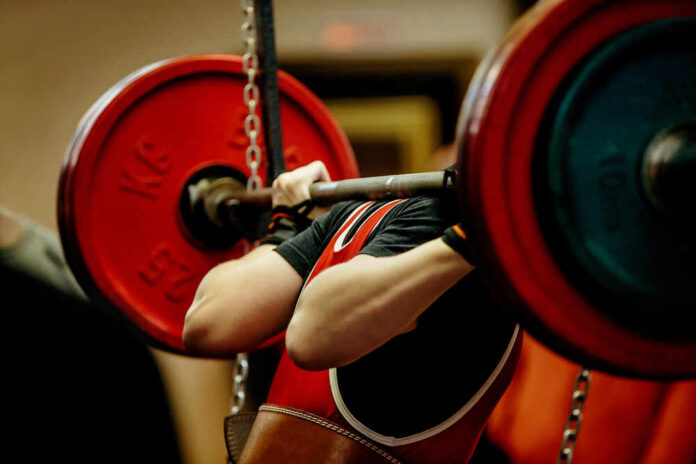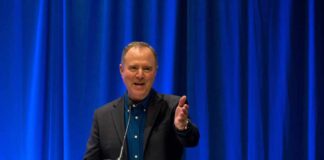
A male powerlifter has set a women’s national powerlifting record and an unofficial women’s world record thanks to Canada’s refusal to place commonsense restrictions on men competing in women’s sports — as the country doesn’t even have any requirements for “hormonal therapy or surgery” for transgender athletes.
A 40-year-old man who calls himself Anne Andres competed at the Canadian Powerlifting Union’s 2023 Western Canadian Championship in Brandon, Manitoba, on Sunday — where he had a total powerlifting score of 597.5kg, or roughly 1,317 pounds.
His score — which is based on the total of the heaviest weight lifted for the bench press, deadlift and squat — was over 200kg more than the top-ranked woman, SuJan Gil, who had a score of 387.5kg, or 854 pounds.
“Andres’ total would have placed him amongst the top-performing male powerlifters in the entire championship had he participated in the men’s category,” according to Reduxx.
Women, including other powerlifters, have blasted Andres’ inclusion in the female category — with the International Consortium on Female Sport (ICFS) writing in a post on X, formerly known as Twitter, that his national record was just “a mediocre lift by a mediocre male.”
“Shame on the Canadian Powerlifting Union (CPU). This is discrimination against the female competitors,” the ICFS added.
This is NOT a legitimate 🇨🇦National Record.
This is a mediocre lift by a mediocre male who is being allowed to lift against women because… hair colour? 🤔
Shame on the Canadian Powerlifting Union (CPU).
This is discrimination against the female competitors.#SaveWomensSports pic.twitter.com/F8mdFpnz01— International Consortium on Female Sport (ICFS) (@ICFSport) August 14, 2023
Riley Gaines, a former University of Kentucky swimmer and advocate for protecting women’s sports, spoke out about Andres’ record — while also highlighting comments from the male powerlifter, who mocked his female competitors for not being good enough at the sport.
@JustinTrudeau 's radical disdain for women (and reality) in effect🤡
New national and unofficial world record for trans identifying male, Anne Andres pic.twitter.com/E46860L14P
— Riley Gaines (@Riley_Gaines_) August 14, 2023
Canadian competitive powerlifter April Hutchinson also spoke out about Andres’ national record during an appearance on “Piers Morgan Uncensored.”
“It’s been very disheartening,” Hutchinson said. “For example, that national record that he broke — athletes have been chasing that for years. And we’re talking top athletes who have been training, and training, and training. It goes to show the advantages, the physiological advantages that a male has over a female, whether it’s muscle mass, bone density, lung capacity. I could go on.”
“A lot of women yesterday dropped out of the competition because they knew that Anne would be lifting,” she added. “They dropped, they quit, they wrote to the federation, and the federation basically did nothing about it.”
"A lot of women yesterday dropped out of the competition because they knew that Anne [Andres] would be lifting."
Powerlifter April Hutchinson says the federation is 'doing nothing' amid concerns over a trans woman competing in the female category.@Lea_Christina4 | @RooLockwood pic.twitter.com/otFLjpMllM
— Piers Morgan Uncensored (@PiersUncensored) August 14, 2023
The Western Canadian Championships follow the rubric of the Canadian Powerlifting Union (CPU), which released a “Trans Inclusion Policy” in February of this year. The document stated: “The CPU supports the recommendations outlined in Creating Inclusive Environments for Trans Participants in Canadian Sport, the guidance document developed by the Trans Inclusion in Sport Expert Working Group and published by the Canadian Centre for Ethics in Sport (CCES). The CPU adopts the best practices outlined in the document and has used the four Policy Guidance statements in the development of this Trans Inclusion Policy.”
The first Policy Guidance statement stated that so-called transgender athletes “should be able to participate in the gender with which they identify and not be subject to requirements for disclosure of personal information beyond those required of cisgender athletes. Nor should there be any requirement for hormonal therapy or surgery.”


















